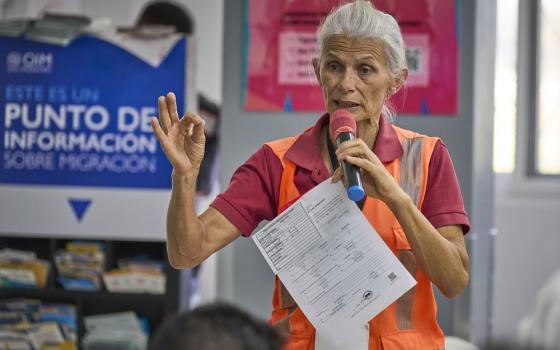
Rome has vetoed an election by the Maryknoll religious order which would have seen a religious brother, meaning someone not ordained to the priesthood, installed as the order's superior in the United States. Instead, the Vatican has directed that Maryknoll must choose a cleric for the job.
The decision, communicated to Maryknoll in early August, is consistent with earlier Vatican rulings that in religious orders containing both priests and lay brothers, formal authority must be exercised by priests. In 2002, the Vatican nixed an attempt by the Capuchin Franciscans to elect a brother as provincial superior of their Detroit-St. Joseph Province.
In general, church-watchers say that policy is intended to defend the theology of apostolic succession, in which decision-making power in the church is believed to flow through the sacrament of holy orders. Although religious brothers take vows and are generally seen as equals within their communities, under the church's canon law they are considered laity.
The decision means that Maryknoll Br. Wayne Fitzpatrick, elected in May to the position of regional superior for the United States, will not take that office. New elections are currently underway, with the result expected by late August.
For now, Fitzpatrick will continue serving as the order's director of continuing education and lifelong formation.
Fr. Ed Dougherty, the superior general of Maryknoll, told NCR that the order's constitutions specify that if a brother is elected to certain offices, the order must petition Rome for permission. Because Maryknoll is a missionary society, it falls under the jurisdiction of the Congregation for the Evangelization of Peoples, the Vatican office that oversees missionary activity.
Dougherty said he asked the congregation to approve Fitzpatrick's election, hoping that the fact that a majority of electors were priests, combined with Fitzpatrick's track record of leadership in the order, would overcome the presumption in favor of a priest. He said Fitzpatrick has previously served on the order's general council in the United States for two terms, as well as holding the position of secretary general of the entire order for twelve years.
In addition, Dougherty said, a religious brother had been elected to the position of assistant regional superior in Kenya twelve years ago, and in that case the Vatican approved the result.
Dougherty said members of the order were "very disappointed" in the Vatican decision, feeling they had chosen "the best person for the job." He questioned the logic that the office of a superior in a religious order must be a priest, arguing that a brother can do "exactly the same things" as a priest in terms of administration.
"I wasn't surprised, to tell you the truth," Dougherty said of the Vatican decision. "There's still a hierarchical sense in which having a brother over a priest is a problem. There's a fear of a slippery slope, of the camel getting its nose under the tent" toward an erosion of priestly authority, he said.
"I had hoped maybe we'd moved beyond that," Dougherty said.
More broadly, the reluctance to see religious brothers elected to positions of authority over priests is part of a long-simmering debate in the church over how much power a lay person may exercise. Although the Code of Canon Law specifies that the "power of governance" belongs to priests because of the connection with the sacrament of holy orders, a 1983 revision to the code also says that laity may "cooperate in the exercise of this power."
Exactly what the nature, and the limits, of that cooperation are remain somewhat ill-defined, according to many canon law experts. It's a question with implications not just for religious life, but for many other questions in the church – for example, the role of a lay administrator in a priestless parish.
In a 2007 essay, Vincentian Fr. Paul Golden, a former president of the Canon Law Society of America, described the lack of precision about laity and the power of governance as "a good example of law waiting until the theological discussions have clarified the issue before a norm is made."
The Vatican's tendency towards a restrictive view of the capacity of lay persons to exercise governance is generally understood as part of an effort to preserve the distinctiveness of the ordained priesthood, which in turn is driven by a desire to foster a strong sense of Catholic identity in contrast with secularism – a task identified in 2007 by Italian Cardinal Tarcisio Bertone, the Vatican's number two official, as the "top priority" of the pontificate of Benedict XVI.
Maryknoll, formally called the "Catholic Foreign Mission Society of America," is a U.S.-based order focused on overseas missions, including East Asia, Latin America and Africa. The order will celebrate the 100th anniversary of its foundation in 2010.
[John L. Allen Jr. is NCR senior correspondent. His e-mail address is jallen@ncronline.org.]
Editor's Note: Listen to Br. Wayne Fitzpatrick talk about his vocation as a brother and missionary in this video clip: Men on Fire for Mission



